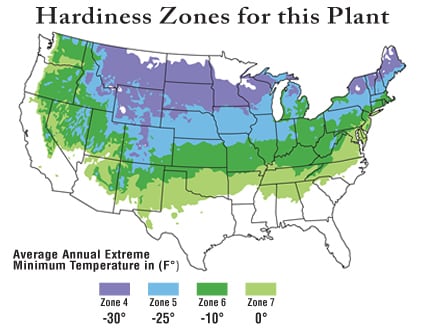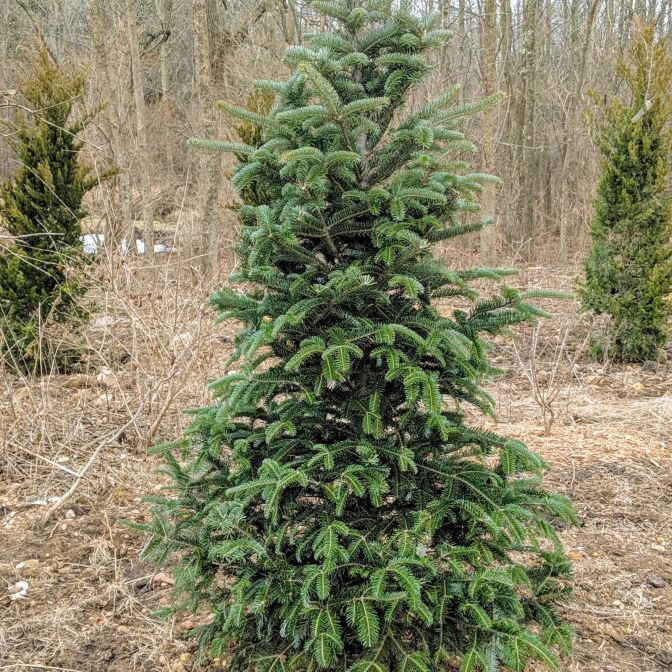Canaan Fir
Plant Type: Evergreen, bare-root
Zones: 4-7
Soil Type: Loamy & Sandy Soils
Site Selection: Full Sun, Partial Sun
Mature Height & Width: 45-55' Height and 15-25' Spread
Growth Rate: Moderate - 12-24" per year once established
Moisture Requirements: Average
Canaan Fir Plugs Also Available - CLICK HERE



Canaan Fir
Abies balsamea var phanerolepsis
The Canaan Fir is a stately fir that boasts dense, dark green to bluish fragrant foliage. With excellent needle retention, it is a sought after choice for Christmas tree production. A fine addition to your landscape whether in groups or as a single specimen. Needles are about an inch in length and cones are 3-4", growing upright on its branches. While similar to the Fraser and Balsam Fir in appearance and growth habit, the Canaan Fir will grow in heavier soils as well as soil with a higher pH level. Avoid heavy wet clay. Since this tree exhibits a later bud break, the Canaan Fir is less susceptible to spring frost injury. Fairly deer resistant. Drought tolerant once established. Buy Canaan Fir tree seedlings from our nursery today!
- Elegant Fir with dark green bluish needles
- Will grow in clay soils as long as they are not heavy and wet in nature
- Later bud break minimizes chances of spring frost injury on tender new buds
- Once established the Canaan Fir exhibits good drought tolerance
- Fairly deer resistant unlike the Fraser and Balsam Fir
- Commonly referred to as the West Virginia Balsam fir even though the Canaan has its own unique ecotype
- Pronounced "Ka-naan" with the emphasis put on the last half of the word.
Fun fact: The Canaan Fir derived its name from the Canaan Valley in West Virginia
Common Uses:
- Christmas tree production
- Ornamental and specimen tree
- Watershed and water quality protection
- Landscape groupings or as a specimen
- As part of a windbreak
Many birds enjoy a place for nesting, roosting and general protection from winter weather. Red Squirrels and birds sometimes eat the seeds from the cones that are produced on the Canaan Fir.








